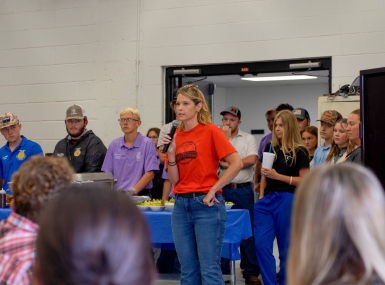Legislation introduced to measure economic impact of opportunity zones
Upcoming Events
Related News

Key Takeaways
On May 8, Sens. Tim Scott (R-S.C.), Cory Booker (D-N.J.), Todd Young (R-Ind.) and Maggie Hassan (D-N.H.) introduced legislation that would require the Secretary of the Treasury to collect data on opportunity zone tax incentives established under the 2017 Tax Cuts and Jobs Act (P.L. 115-97). Many counties contain areas that qualify for opportunity zone status and are eligible for targeted investment.
Under the proposed legislation, S. 1344, the U.S. Department of the Treasury would be required to gather information on investments held by Qualified Opportunity Funds, or QOF, which operate as investment vehicles for a partnership or corporation located within an opportunity zone. Specific metrics would include the number of QOFs, assets held in QOFs and the impact of the opportunity zone designation on economic indicators such as job creation and poverty reduction.
In addition to the new data points, the Treasury Department would also be required to collect information on the actual investments made in opportunity zones, including the total investment amount and type of activity supported by the investment. Other data collection requirements would apply to investments made in a business or in real estate, such as the number of full-time employees with the business at the time the investment was made and the total square footage of the property at the time of investment, respectively. If enacted, the Treasury Department would be required to submit its findings to Congress one year following passage of the legislation.
Across the Capitol, Rep. Ron Kind (D-Wisc.) introduced companion legislation (H.R. 2593) that would implement the same requirements.
Legislators’ push to gather data on opportunity zones follows a flurry of recent legislative and administrative activity on opportunity zones in recent months. In addition to S. 1344/H.R. 2593, in April, Sen. Marco Rubio (R-Fla.) introduced legislation that would make census tracts impacted by recent hurricanes and wildfires eligible for designation as opportunity zones to expedite economic recovery. Prior to that, in December 2018, President Trump signed an executive order establishing the White House Opportunity and Revitalization Council, which aims to streamline resources across different federal agencies to support opportunity zones.
During NACo’s 2019 Legislative Conference, members approved an interim policy resolution urging the Treasury Department to issue guidance and regulations on opportunity zones, with an emphasis on collaboration with local jurisdictions and stakeholders. As Congress and the administration weigh new developments around opportunity zones, NACo will continue to engage with our federal partners to ensure counties have the resources to develop our local economies.
For more NACo resources on opportunity zones, please see the following links:
- NACo 2019 Legislative Conference: Making Sense of New Federal Funding Tools: Opportunity Zones and Pay for Success
- President issues executive order streamlining federal funds for opportunity zones
- U.S. Treasury, IRS issue regulations on investment in Opportunity Zones

Attachments
Related News

National Association of Counties Reinforces Intergovernmental Partnership in Response to State of the Union Address
The National Association of Counties (NACo) responded to President Trump’s State of the Union address with a statement from Executive Director Matthew Chase.

Inland port offers opportunity for Hertford County, N.C.
Hertford County, N.C. doesn’t have a lighthouse, but that hasn’t stopped its economic future from shining thanks to what became known as Project Green Lantern.

Chamber of commerce program helps keep workers on the job
Audrain County, Mo.'s Workforce Resource Assistance Program has helped employers keep staff in place, reducing turnover and promoting stability.